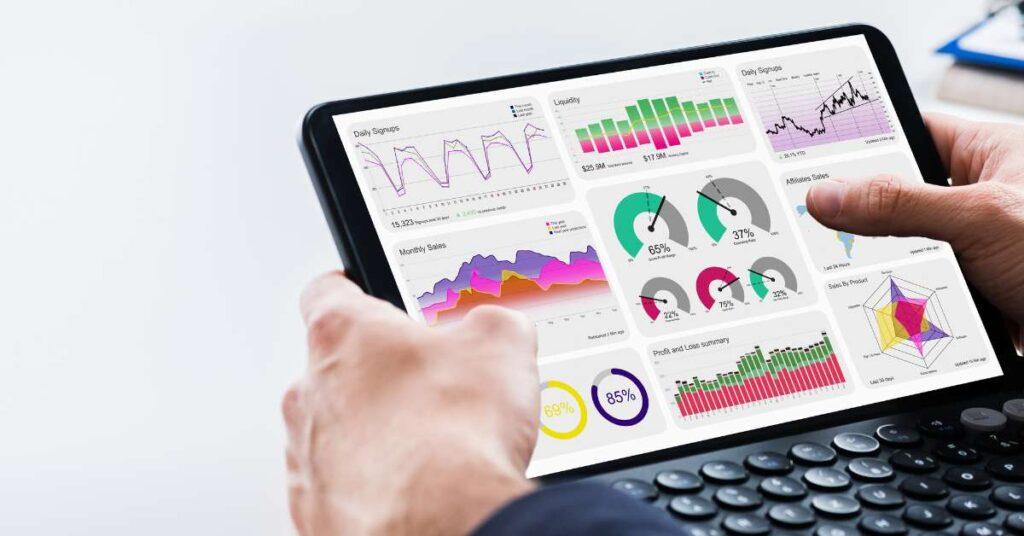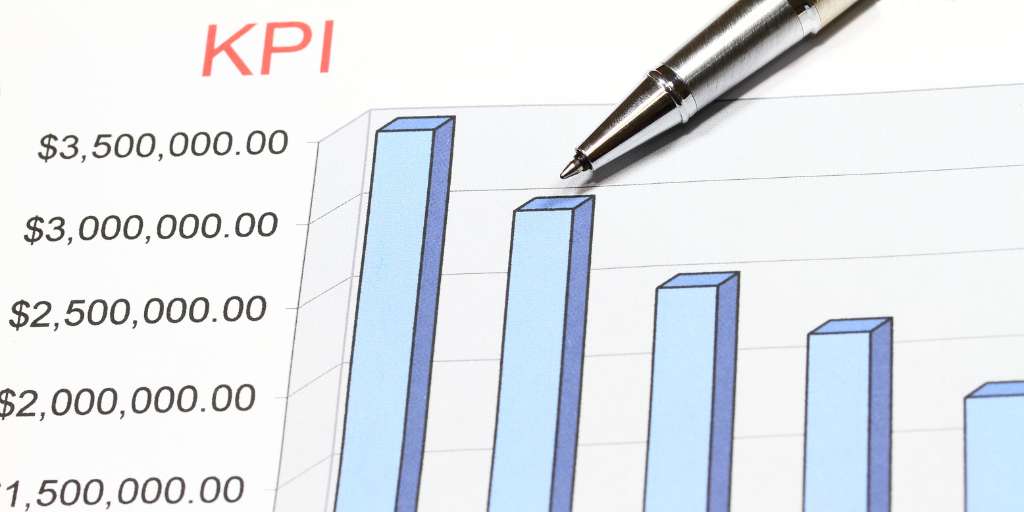
Adaptive Leadership in Hybrid Organizations
The adaptive leader, like a chameleon, adjusts in real time to effectively orchestrate a hybrid and connected team.
Par Nadia Bulcourt – 16 janvier 2023

The KPI indicator is widely used in the business world. Designed to help decision making, it is an essential tool to improve the results of its activity. It is important to know that there are different types of performance indicators. Not all of them are necessarily useful for your business. You should therefore only retain the relevant KPIs that will allow you to develop dashboards for your teams to better manage your company’s commercial strategy.
We will see how to set up your own indicators and define those that will help you measure your sales performance. We will also discuss the importance of the kpi indicator in the daily work of your teams.
KPI’s provide numerical data that reflect the performance of a company, particularly its sales performance.
The term KPI means Key Performance Indicator. It is in fact a measure that aims to verify the performance of an action or an activity. For example, if you decide to set a sales target of €1,000 per week for your sales team, you need to be able to measure their performance. This is why it is important to define the key indicators.
There are four main types of key performance indicators.
It concerns everything related to the company’s resources. It is one of the fundamental indicators for the industry sector. In addition, it will allow, for example, to study the relationship between demands and production during a given period.
Here it is more a question of knowing the perception that the customer has of a product, or a service provided. Depending on the results, the company may or may not revise the quality of its products and/or services to guarantee a better satisfaction rate.
These KPIs are important to determine the maximum quantity of products and services that can be created and delivered in each time. They help you set limits within a defined time frame.
This type of KPI aims at acquiring a long-term vision of the health of your company. It refers to the overall objectives of the organization. Thanks to it, you can establish action plans to improve the situation.

It is important to choose the right KPI according to your objectives. Depending on what you wish to measure, they are likely to bring you key returns as for the development of your activity.
The most successful companies are those that set clear goals. These can be short-term (e.g., quarterly) or long-term (e.g., those that enable the company to achieve its mission). They must be precise and measurable.
We will now focus on the KPIs that contribute to your business strategy on the sales and marketing axis. Does your company have a BtoB or BtoC profile? Does it sell services or products? What are its distribution channels? If you want to know the performance of your different departments or of your team members, then you will favour quantified commercial indicators. If you want to measure the satisfaction of your customers or the quality of your products, you will rely on qualitative KPIs. It is up to you to select the KPIs that are the most relevant for your activity.

We know that by developing a commercial strategy, your company will have more chances to develop its growth. And by relying on quantitative and qualitative performance indicators, you will be able to manage your strategy. Indeed, you will be able to rely on the results to make the decisions that will lead your business to success. Let’s see which are the main kpi to use to evaluate the commercial performance of your company.
These are figures that will help you monitor the progress of your sales productivity over a defined period, whether short or long. They concern the volume of sales concluded, the number of new contracts, the turnover achieved…
These indicators allow us to identify different observations or assessments of a situation. In short, they are invaluable for evaluating the quality of your sales team’s work. Here, we will look at the customer satisfaction index, the number of complaints, the objections of prospects…
Once you have considered the quantitative and qualitative indicators, you will be able to identify rates that will allow you to go further in your strategic management: acquisition rate, customer conversion rate…
It is important to remember that these barometers must be adapted to your sector, your sales cycle, and your sales team.
Once you have set up an effective prospecting plan within your company, you will determine which indicators you will monitor in order to make any changes. Here are some examples: rate of customer calls made, statistics on your emailing campaigns, customer acquisition cost (CAC) or cost per lead/lead (CPL).
You will gather all these performance indicators in a sales dashboard. It is up to you to build it in the form that speaks to you the most: curves, progress bars… This chart will help you to quickly visualize the overall performance of your sales force.

Performance indicators are still very useful to your employees. Thanks to them, a manager can evaluate the operational actions of his team at a glance, to identify problems and opportunities. In addition, they provide autonomy to your teams and make them accountable for the objectives to be reached.
Within a company, the marketing and sales teams complement each other and pursue a common objective, that of developing the company’s business. By sharing performance indicators, you can involve all the actors concerned in the process. They can then align their actions around the growth of your business.
When you establish a collaborative approach to defining and communicating your KPIs, you improve the whole process. Your employees feel empowered, as part of the same team. A KPI helps develop their skills and capabilities.
It is important to always monitor your KPIs to optimize them in real time. Don’t leave them out and look at the results to decide what changes to make, where to improve or where to focus your business strategy. Also, remember to communicate your progress to your stakeholders.
The KPI is an effective way to measure and track the performance of your team and your company. By selecting and analyzing KPIs correctly, leaders are better able to optimize their efforts to ensure long-term success for their company.
To help you properly define and track your KPIs, contact our Finelis Coaching team!

The adaptive leader, like a chameleon, adjusts in real time to effectively orchestrate a hybrid and connected team.

Looking for commercial results without the recruitment delay? Discover how a fractional Sales Director can hit the ground running and drive performance from day one.

Spring is a turning point in your business dynamics. Take stock of your commitments, realign your teams, and boost your results before summer.

Feeling the winter drag on your team? Reignite connection, clean your tools, and give your people purpose with 3 actionable ideas from Finelis.

Spring is a strategic time to boost your business. Discover how to align your sales efforts with seasonal cycles and turn the transition into a growth driver.

Attending a trade show is a powerful business opportunity. Discover how to maximize your impact with strong preparation, engaging techniques, and structured follow-ups.